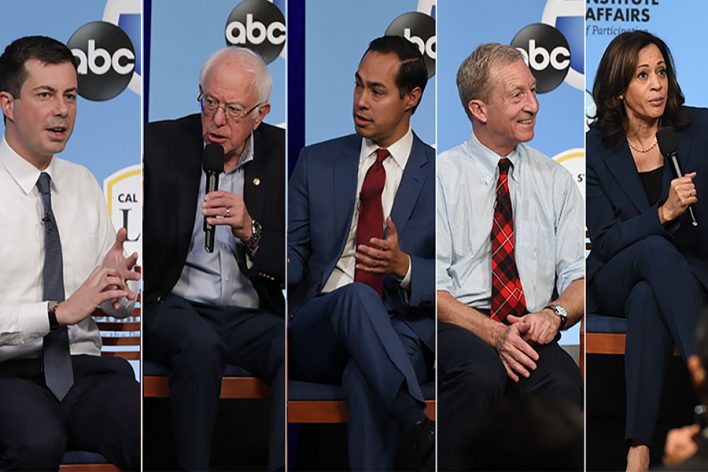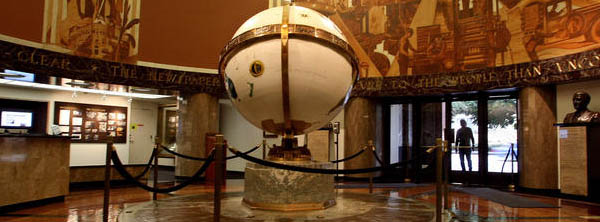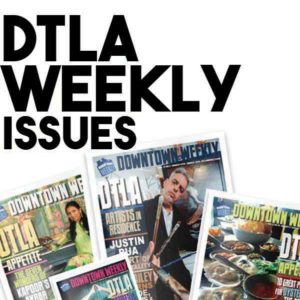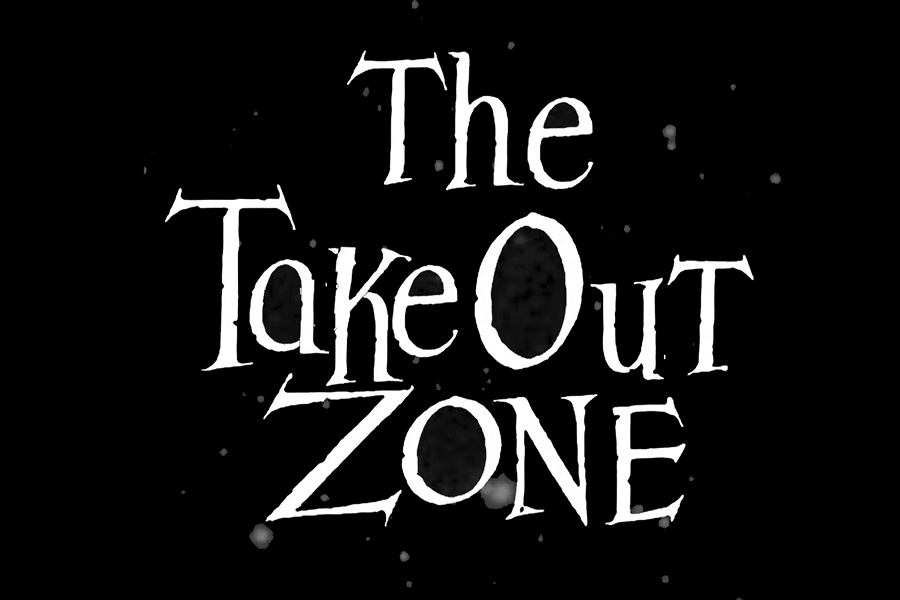
Democratic presidential candidates addressed Latino issues at a Cal State LA forum Sunday, November 17th. Candidates Buttigieg, Sanders, Castro, Steyer and Harris discussed topics including immigration, health care, and housing. Downtown Weekly is sharing the report sent by CalState as part of our ongoing political and most intriguing legal battles column, DTLA Wrong or Right?
Five Democratic presidential candidates vying for the party’s nomination in 2020 appeared at Cal State LA on Sunday for an intimate conversation about key issues that are important to the Latino community.
Mayor Pete Buttigieg, U.S. Sen. Bernie Sanders, former U.S. Housing Secretary Julián Castro, billionaire businessman and philanthropist Tom Steyer and U.S. Sen. Kamala Harris participated in the 2019 Democratic Presidential Forum on Latino Issues on Nov. 17. The forum was hosted by the Pat Brown Institute for Public Affairs at Cal State LA and ABC7, in partnership with the California Latino Legislative Caucus and the Californians for Humane Immigrant Rights Leadership Action Fund (CHIRLA).
Moderated by veteran ABC7 news anchor Marc Brown, the forum was broadcast live and explored topics including immigration, health care, housing and economic security, hate crimes and education. In 13-minute individual conversations, candidates answered questions from ABC7 reporters and from the audience, which included local community members and students from Cal State LA and local high schools.
The first candidate to answer questions was Buttigieg, mayor of South Bend, Indiana. He joined two reporters on a stage with audience members watching on three sides in Cal State LA’s Intimate Theatre in the Luckman Fine Arts Complex.
Cal State LA Associated Students, Inc. President Aaron Castaneda asked Buttigieg how he would help graduating students get “a foothold on the ladder of opportunity and upward mobility” in light of rising housing costs. Buttigieg said he would propose to invest $430 billion in housing in the U.S.
“Part of what we have to do is make sure our economy actually works for us, not just numbers on a page or the stock market, but what we earn—what you earn as you emerge into the working world—rises as quickly as those costs,” Buttigieg said.
When it was Sanders’ turn onstage, a reporter asked if his Medicare for All plan would cover undocumented immigrants. Sanders responded emphatically: “The answer is absolutely, of course.”
“When we talk about Medicare for All—A-L-L—it means all,” the U.S. senator from Vermont said. “It means every man, woman and child in this country including the undocumented. Medicare for All means that there are no longer any premiums, no longer any copayments, no longer any absurd deductibles and no longer any out-of-pocket expenses.”
Candidates were asked about the Deferred Action for Childhood Arrivals program, or DACA, whose fate is in the hands of the U.S. Supreme Court, which is considering if the Trump administration can end the program. Castro emphasized his support for DACA and for comprehensive immigration reform.
“No matter what happens in the Supreme Court with DACA, if I am elected president I will immediately, by executive order, find a way to protect our Dreamers and also to protect their parents, and then immediately push for fixing our broken immigration system in Congress,” Castro said.
In response to a question about immigration, Steyer said as president he would ensure the U.S. honors the rights of asylum seekers and would guarantee that family separations at the U.S. border never happen again.
“As a value-driven country that wants to be partners with other countries around the world in solving our common problems, including in this hemisphere, I think it’s absolutely critical that we be dealing fairly with these people, both for their sake but also to project who we are so that we can be a trusted and decent partner for countries and people around the world,” Steyer said.
When Harris was asked how she would address the student loan debt crisis, she said she plans to offer free community college, debt-free college, loan forgiveness for individuals or families earning less than $100,000 a year and to require student loans be interest free.
“We have to invest in the people of our country and one of the smartest investments we can make is in our students and in our young people who want to get an education after high school,” said Harris, who is a U.S. senator from California.
The issues discussed at the forum are particularly significant for Cal State LA given the university’s relationship with the region’s Latino community and its leaders.
Cal State LA is a federally designated Hispanic-Serving Institution and is ranked number one in the nation for the upward mobility of its students. The university counts among its alumni many pioneering Latino elected officials who have helped shape the face of Latino leadership across the region.
“It’s very fitting that this forum is being held here at Cal State LA,” said Cal State LA Executive Vice President and Provost Jose A. Gomez, who serves as chair of the Pat Brown Institute Board of Advisers. “This university has been an escalator of opportunity for Latinos and is an example of the grit, resilience, and success of the Latino community.”
Because Sunday’s event was a forum and not a debate, the candidates were never onstage together.
“The forum was an important opportunity for all of us to see the candidates up close and personal here on our campus,” said Raphael J. Sonenshein, executive director for the Pat Brown Institute. “But it was also an opportunity, I hope, for candidates to learn about the issues that matter directly in people’s lives.”
Photo: From left to right, Mayor Pete Buttigieg, U.S. Sen. Bernie Sanders, former U.S. Housing Secretary Julián Castro, billionaire businessman and philanthropist Tom Steyer and U.S. Sen. Kamala Harris. (Credit: J. Emilio Flores and Robert Huskey/Cal State LA)
[/ihc-hide-content]










